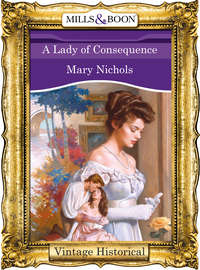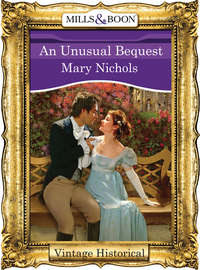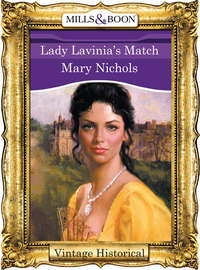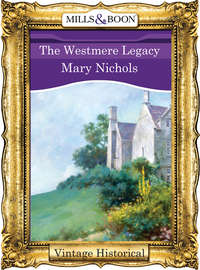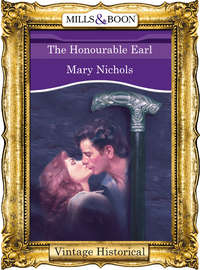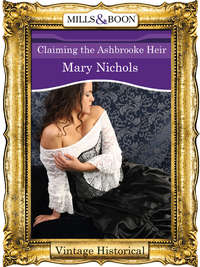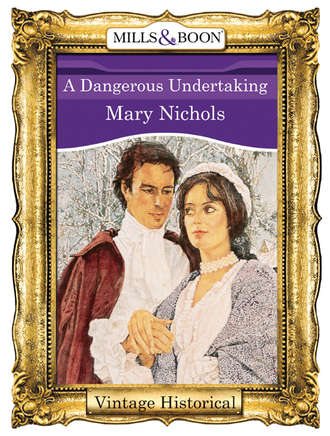
Полная версия
A Dangerous Undertaking
‘I am sorry,’ she murmured politely.
‘I shall introduce you to him.’ He turned to her as if suddenly thinking of it. ‘I’ll wager you would deal well together.’
‘I thought the days of matchmakers were gone,’ she said, smiling and revealing a twinkle in her eye and a dimple at the side of her mouth he had not noticed before; it gave him a twinge of conscience.
‘Sometimes it is necessary. Shall we stop at Winterford Manor, so that you may make his acquaintance?’
‘No, thank you,’ she said firmly. ‘I am flattered that you should think me worthy, but we are strangers and I am in mourning. Making calls will have to wait until I have settled down.’
He sighed and turned the curricle away from the village they had been approaching and down a narrow rutted track which ran alongside a high bank, on the other side of which was a wide ribbon of water which was too straight to be a river. Halfway along it was one of the strange windmills she had noticed before.
‘What are those for?’ she asked, pointing.
‘The land round here is often flooded in winter. The windmills take the water off the fields in the buckets and tip it into the dykes.’
‘How clever.’
They rode on in silence, Charles wondering how he could further Roland’s cause without frightening her away, and Margaret apprehensive of what she would find at the end of her journey,
She realised he was making for a speck on the horizon which, as they drew nearer, was revealed as a house. It was a big square brick building which stood almost abutting the lane. On its other side, an overgrown lawn went down to a boat-house and a tiny jetty where a rowing-boat was moored in the water of the fen. The road went no further.
‘Do you want me to wait?’ he asked as he pulled the horses up at the door.
‘No, thank you. I am grateful for your trouble, but I shall manage now.’ She did not want a witness to her first encounter with her great-uncle and was glad he took her at her word.
‘Very well. But if you change your mind about meeting his lordship, do not hesitate to let me know.’
As soon as she had alighted he turned the vehicle round and was soon bowling away along the flat road, back to Winterford. She sighed and turned to knock on the thick oak door.
She was taken completely aback when it was opened by a girl with a white-painted face, full red lips and several patches. She wore a pink satin open gown whose laces strained across her bosom, and a petticoat of red silk, beneath which Margaret could see white stockings and red high-heeled shoes. She stared at Margaret. ‘Well, you’re a little out of the ordinary, I must say.’
‘I beg your pardon?’
‘Different, I mean. You look as if you couldn’t say boo to a goose.’
‘Then my looks belie me,’ Margaret retorted, putting her chin in the air. Who did the hussy think she was? ‘Is Master Capitain at home? I wish to speak to him.’
‘Henry!’ the girl yelled over her shoulder. ‘Come on out here and see what’s turned up.’
There was a shuffling noise behind her and a man pushed past her to stare at Margaret with myopic eyes. He wore white small-clothes which were stained with wine or tea, or something of the sort, and a shirt which was opened almost to the waist, revealing an expanse of flabby white flesh. His legs were clad in dirty white stockings but he wore no shoes. He had discarded his wig and his thin white hair stood up at all angles round his head. He had about six chins which wobbled down into a thick neck. ‘Who are you?’ he demanded. ‘Did I ask you to come?’
‘No, but I wrote to you. Did you not receive my letter? I am Margaret Donnington.’
‘Margaret who?’
She countered with a question of her own. ‘Are you Master Capitain?’
‘Yes, of course I am. Who else would I be? And I don’t remember any letter.’
‘I am your great-niece. I am Felicity’s daughter.’
‘Great Jehosophat! I thought she was dead.’
Margaret gulped hard to take control of herself, though she felt like fleeing back down the road. ‘She is dead. She died two weeks ago.’ She paused, but he seemed unable to take in what she was saying. ‘Before she died, she told me to come to you.’
‘Why, for God’s sake? We ain’t seen each other in…’ He racked his brain to remember. ‘It must be nigh on thirty years. I did hear she had married. What did you say your name was?’
‘Margaret Donnington.’
‘How did you arrive here?’
‘I came by stage to Ely and then a gentleman going to Winterford Manor brought me on.’
‘Pargeter!’ There was no attempt to disguise the contempt in his voice.
‘No, it was one of his guests.’ She paused, waiting, then added. ‘Are you not going to invite me in?’
‘The house is all in a muddle,’ he said. ‘Not fit to be seen. This slut——’ he indicated the girl at his side, who had continued to stare at Margaret with unveiled amusement ‘—Nellie, here, don’t go much on keeping house.’
‘’Tain’t what I came for,’ the girl retorted. ‘I’m not a servant. If you don’t like it you know what you can do.’
Margaret was wondering if she was ever going to be allowed over the threshold, and he was looking at her with bright little eyes, almost buried in the flesh of his cheeks, as if he wished her anywhere but on his doorstep. It was a wish she shared. At last he said, ‘Better come in, though this ain’t the place for a well-brought-up young lady.’
The girl he had referred to as Nellie laughed as she led the way through a dusty hall to an even dustier drawing-room with heavy old-fashioned furniture and faded velvet curtains. ‘That’s a fact and no argument,’ she said, with a chuckle that hinted at something Margaret was not sure she wanted to know.
‘Get us all a drink,’ Henry ordered the girl, then, turning to Margaret, indicated the settle. ‘Sit down. Tell me what happened.’
The telling did not take long, and he was silent at the end of it, his many chins resting on his chest and his eyes glazed. The glass in his hand was empty and so was the girl’s, but Margaret had not touched her wine.
‘My, that’s a turn up for the books,’ Nellie said. ‘What are you going to do now?’
Margaret looked from her to her uncle, who did not deign to answer for several seconds.
‘I don’t know,’ he said at last. ‘I don’t know. Ain’t you got anyone else you can go to?’
‘No, or I would, believe me.’
‘Where’s your father?’
‘He died in India. I was born out there in 1727, but the climate did not suit my mother and, when my father died, she brought me back to England. I was only a baby then; I do not remember him.’
‘Nineteen years old,’ he murmured. ‘Felicity took her time about producing, considering she left here in ’15.’
‘My parents were married two years before I was born, no more.’
‘Hmm,’ he mused. ‘Fancy that little chit managing on her own all that time. What did she do? For a living, I mean.’
‘She was a mantua-maker, and a very good one.’
‘Is that so? Hardly the occupation of a lady of breeding.’
‘Perhaps she had little choice,’ Margaret snapped in defence of her beloved mother, though she had no idea what had happened in the past. If Great-Uncle Henry was a sample of her family, then she did not blame her mother for never mentioning them.
‘And you expect me to welcome you with open arms?’ her uncle asked.
Nellie giggled. ‘Why not? You do everyone else…’
‘Shut up, you witless cow,’ he said to her, then to Margaret, ‘You’d do better turning right round and going back where you came from.’
‘I can’t. I’ve no money.’
‘Neither have I and that’s a fact.’ He sighed. ‘You’d better stay, I suppose. Just until we can think of something else. Nellie, my dear, show her where she can sleep and tell Mistress Clark there’ll be one more for dinner.’
The house, neglected as it was now, had once been very fine, Margaret decided as she followed Nellie up the carved oak staircase and along a wide landing. The people who had built it must have been quite wealthy and had some standing in the community; the building materials would have had to be transported some distance because, apart from willows and a few aspen, there were no trees locally. The proportions of the house were on a grand scale too; lofty ceilings and long windows with leaded panes. Some of the doors along the landing were standing open and revealed large rooms full of worn furniture which had once been good.
One room was obviously in use. It was even more untidy than the rest of the house—the bed was unmade and garments were scattered all over the bed and the floor. Margaret could not help noticing that there was a man’s night shirt and hose as well as women’s clothes. She averted her gaze hurriedly; so Nellie was her great-uncle’s wife! She was younger than Margaret herself and she was certainly not a lady of breeding. But who was she to criticise? Margaret asked herself as she followed her hostess into a bedroom at the far end of the corridor.
‘You won’t be disturbed here,’ Nellie said. ‘I hope you’re not used to being waited on, because there aren’t any servants except Mistress Clark, and she don’t sleep in.’ She laughed suddenly. ‘She don’t approve of Henry’s goings-on, as she calls them, but she stays on account of she knew the old master.’
‘My mother’s father?’
‘Yes; I suppose it would have been Henry’s brother. He was a few years older than Henry. Before that, of course, there was your great-grandfather. Henry don’t talk about them.’
‘Is there no one else in the family?’
‘Not that I know of, but then I ain’t known Henry that long.’ She paused, looking round the room. ‘It’s a bit dusty. It ain’t one of the rooms we use often.’
‘Do you entertain much, Mistress Capitain?’ Margaret asked, going over to the wash-stand and noticing the scum on the top of the water in the jug.
Nellie threw back her head and laughed. ‘Bless you, I ain’t Henry’s wife.’
Margaret was shocked to the core. She was not blind to some of the things that went on in the less salubrious parts of London; she knew men took mistresses and some wives took lovers, but she had never expected to find it happening in her own family, nor in the family home away from the capital. She sat down heavily on the bed, sending up a cloud of dust.
‘Don’t look so stricken,’ Nellie said. ‘Henry and me, well, we’re just good friends. I came down here ’cos I needed to get away for a bit, understand?’
Margaret didn’t and she said so.
‘Never mind,’ the girl said, and laughed again. ‘You’re like a fish out of water, here, ain’t you?’
‘Yes.’
‘I’d find somewhere else to go, if I were you.’ It was said almost kindly. ‘Later on, or mayhap tomorrow, there’s a whole lot more coming.’
‘More like you?’ It was out before Margaret could stop it.
‘Yes, only worse. Men and women—they’re coming to gamble and… Well, you know.’
Margaret shuddered. Her mother could not possibly have known it would be like this when she’d told her to come here. Now where was she to go? For a fleeting moment she thought of Charles Mellison and his friend, Lord Pargeter, looking for a wife who would be prepared to live in this outlandish place. She had heard that fen people were all slightly mad, and she was beginning to believe it. What could she do? She lifted her chin. ‘Perhaps you should be the one to leave,’ she said. ‘After all, you have no ties here… .’
It was a silly thing to say and she realised it as soon as Nellie began to laugh. She was still laughing as she went back downstairs, leaving Margaret alone in the grubby bedroom.
It was a corner room, having windows on two sides which would have made it a pleasant bedchamber if it had been clean. It had a bed, a dressing-table and a cupboard, standing on a carpet so faded as to be colourless. She did not unpack, but went to the window and looked out on a landscape so bleak that she didn’t know how anyone could like it. She saw nothing but acres and acres of flat land, some of it meadow, some of it ploughed, intersected by dykes, whose banks were higher than the surrounding land. From the other window the view was of water, with clumps of frost-blackened sedge and reeds. A rowing-boat rocked on its moorings beside the landing-stage. Overhead, in the great bowl of the sky, a heron flew. But her mother had loved her childhood here and had spoken of the special magic of the fen country—its glorious sunsets and red dawns, its plentiful wildlife, fish and fowl, its close-knit communities and hardy, superstitious people. What she had never told Margaret was why she had left and why she had never been back. As she stood at the window, a little of the atmosphere communicated itself to her and for the first time she began to understand.
But that did not mean she wanted to stay. Her uncle evidently did not want her and she was certainly not impressed with him, but what else was there for her to do? She had no money to return to London. Suddenly she found herself thinking again of Charles Mellison, who had suggested she should marry, and his long-legged, handsome companion, who was looking for a wife. She did not want either of them to be given the opportunity of crowing over her. She smiled and turned from the window; she would just have to make the best of the situation. Straightening her shoulders, she returned downstairs and made her way to the kitchen, intending to ask for mops and buckets to clean her room.
CHAPTER TWO
MISTRESS CLARK was thin and dark, reminding Margaret of a scavenging crow as she darted about the kitchen picking up utensils and bowls. She was muttering to herself, but stopped suddenly when she saw Margaret. ‘Miss Felicity!’ The bowl she had in her hand dropped to the floor and shattered. Margaret bent to pick up the pieces.
‘It’s a judgement, that’s what it is,’ the woman went on, crossing herself. ‘I knew it would all end in tears; I told you so.’
‘I’m not Felicity, Mistress Clark. I’m her daughter, Margaret.’
The cook let out her breath in a long sigh. ‘My, you gave me a fright, mistress. The image of your poor mother, you are.’
‘My mother is dead.’
‘And you thought you would come back home, did you?’
‘It was Mama’s last wish. I’m sure she didn’t know it would be like…’ She paused, lifting her arm to indicate the house. ‘Like this.’
‘No, she wouldn’t. She was only a young girl when she left home. I told her; I told her it would end in misery…’
‘Mama wasn’t unhappy, Mistress Clark. She and my father were very happy until he died and then we managed very well, she and I.’
‘Well, I’m glad to hear it. But you aren’t thinking of staying here, are you? This is an evil place and that one…’ She pointed with a wooden spoon at the wall dividing the kitchen from the rest of the house. ‘That one is the devil. Get out. Get out before he drags you under his wicked spell. He’ll——’
She was interrupted by a bellow from the corridor outside, and the door was thrown open to reveal Henry Capitain, more tousled than ever. ‘Are you going to stand there gossiping all day? I want my dinner.’
‘It’s coming,’ the cook said, but there was no servility in her tone. ‘Do you think I’ve got ten pairs of hands?’
‘And you mind your manners, or you’ll be out on your ear.’
Her answer was a laugh of derision.
He ignored it and turned to Margaret. ‘Get back where you belong. Seeing’s you’re here, you can be my hostess. You can’t be any worse at it than Nellie. Come on, now, we’ve company.’
Margaret followed him back to the drawing-room, where she found three men and three women who had arrived while she had been talking to the cook. They were all so grotesquely painted that it was impossible to tell what their features were like, and they wore huge wigs which disguised the colour of their hair. The men’s clothes were as vivid as the women’s, in pinks and purples, greens and mauves. They reminded Margaret of a flock of parrots.
‘Margaret, I want you to meet our guests,’ he said, waving a hand at them. ‘Entertain them while I go and dress.’
He disappeared, leaving Margaret unable to utter a word. They stared at her; one of them even lifted a quizzing-glass and moved it up and down inches from her face. ‘Ain’t seen you before,’ he said. ‘Where’d old Henry find you?’
‘He didn’t,’ she said coldly. ‘I am his great-niece.’
This was followed by another long silence, until Nellie came in and diverted them with cries of welcome. ‘It’s been dull,’ she said. ‘There’s nothing to do…’
‘Nothing to do, Nellie?’ one of the women laughed. ‘Don’t Henry satisfy you any more? Well, now we’re all here, things will liven up, don’t you think? Is the niece part of the entertainment?’
‘My, I could be entertained by that one,’ drawled one of the men, looking lecherously at Margaret. ‘It might be amusing, don’t you think? The quiet ones often turn out to have hidden fire. I had a mistress once, young she was, hardly out of the schoolroom and carefully brought up, but my, was she a demon in bed!’
He laughed heartily as Margaret turned and fled.
She ran up to her room, grabbed her bag and hurried down the back stairs to the kitchen. Mistress Clark was just taking a roast fowl from the oven. Margaret dashed past her and out of the door. They would surely catch her if she tried to go back along the only road. She turned and ran over the grass to the landing-stage. They could not follow her if she took the only boat. She threw her bag in the bottom, climbed in and cast off.
She had never rowed a boat before, but she had seen it done on the Thames and she bent to the oars with a will. At first she went round and round and kept bumping into the bank, but at last she found a kind of rhythm and discovered how to steer. Her direction was clear enough because Ely Cathedral stood out clear against the skyline. She had no idea how far away it was, because distances were deceptive where there were no landmarks except a few windmills, and the light was so strange. She rowed out of the wide water of the fen into the cut. She kept going until her back felt like breaking and her hands were covered in blisters, but still the great tower of the cathedral seemed no nearer. She knew that if she stopped the current would take her back the way she had come. She forced herself to continue, and inch by inch drove the boat forward towards a group of buildings surrounding a church, which she guessed was Winterford. There was a small landing-stage and sloping lawns to a large house. Thankfully, she pulled in and, throwing her bag before her, climbed on to dry land. And then, to her great consternation, she found her legs had become so numb with cold that she could not stand.
The house was two hundred yards away and much bigger than she had at first supposed. Built of grey stone, it seemed to have been put together haphazardly, with a tall main building and two wings, one with a lower roof-level which jutted out along the frontage and the other set at right angles. The central frontage had half a dozen evenly spaced mullioned windows and a massive wooden door, heavily studded. She began crawling over the grass towards it, dragging her bag with her, but, before she could reach it, she found herself looking at a kid-booted foot and a dark blue woollen skirt and heard the voice of a young woman. ‘Goodness, you poor thing, whatever happened to you? Charles, come here and help me.’
‘Mistress Donnington!’ Margaret recognised the voice of Charles Mellison, though she was all but fainting and could not see him clearly. ‘How did you get here?’
‘Never mind how she got here,’ the young lady said, before Margaret could find her tongue. ‘Help me get her indoors.’
He lifted her easily and carried her into the house and into a small sitting-room. Margaret saw nothing but the glowing embers of the fire, felt nothing but the warmth enveloping her, and then she fainted.
When she came to herself, she was lying in a beautifully furnished bedroom, covered with clean sheets and warm blankets, and the young lady was sitting in a chair beside the bed watching her. She smiled when she saw Margaret was awake.
‘I’m Kate Pargeter,’ she said, picking at the lace edging of the tiny apron she wore over a flower-patterned silk day-gown. It was almost a nervous gesture, as if she was unsure of herself, but then she laughed and revealed the mischievous look of a young girl. ‘Charles told me you were coming to visit us, but I never dreamed you would arrive in so spectacular a fashion. My brother is out on the land but he’ll be back soon. Wait till I tell him you could not wait for him to send for you and made your own way here.’
‘I wasn’t…’ Margaret stopped, wondering what Charles Mellison had said about her. Why should Lord Pargeter send for her? ‘I’m sorry, I’m confused,’ she said.
Kate’s tinkling laugh came to her as if through a fog. ‘You are nothing like as mystified as I am. I thought you came from London, from Society, but you can evidently row a boat with the best of fen women.’
‘I didn’t know I could.’ Margaret smiled. ‘I don’t think I am very good at it.’ She turned her hands over, but the blistered palms had been covered with salve and bandaged.
‘No, you poor dear. But how brave you were to try.’ She picked up a glass from the small table by the bed and leaned forward to help Margaret drink from it. ‘Charles said you had to go and visit your uncle before you honoured us with a visit, but he was quite sure you would not want to stay there…’
‘He was right about that.’
‘Is it as bad as they say?’ The question was asked with a conspiratorial giggle.
‘What do you mean?’
‘Oh, there are all sorts of rumours. Visitors, you know, riotous behaviour——’
‘Kate, you should not be bothering our guest with questions like that.’ The speaker stood in the doorway, tall, angular almost, in country breeches and muddied top-boots. He was not smiling.
‘Roly, you’re back. Look who’s here. Aren’t you pleased to see her?’
‘Very,’ he said laconically, without stepping over the threshold. ‘But I believe Mistress Donnington should be allowed to rest. You can question her all you like after I have spoken to her.’
Margaret looked up at him, recognising Master Mellison’s companion of the evening before and guessing he was Lord Pargeter. They must have been talking about her or how did he come to know her name? If they had, what had they been saying? And why did Kate say she was expected? The strange conversation she had had with Charles Mellison came to her mind and made her mouth lift in a little quirk.
‘I am glad to see you are able to smile,’ his lordship said. ‘Now, please sleep. We will talk as soon as you feel stronger.’
She wanted to say that they should talk now, that whatever mysteries there were to be solved should be uncovered at once. She felt like a pawn being pushed around on a great chess-board, not in control of the situation at all, and she did not like it. She turned to Kate, who stood up with the empty glass in her hand. Margaret just had time to register that it must have contained a sleeping-draught before her eyes closed.
The next time she awoke, it was snowing. She could see huge flakes of it sliding down the glass of the window, but the room was warm from a fire which blazed in the grate. Her bag had been unpacked; underclothes, white stockings, a cambric petticoat and a round gown of blue merino wool were laid over a chair near the blaze to warm. She turned her head. A maid was pouring hot water into a bowl which stood on the wash-stand in the corner. It was the sound of that which had disturbed her.
‘Oh, did I wake you, mistress?’ the maid said. ‘I’m sorry.’
‘What time is it?’
‘Ten, mistress.’
‘Ten?’ Margaret sat up. ‘You mean ten in the morning? Have I slept all night?’
‘Yes, mistress. I’m Penny; I’m to look after you. His lordship said I was not to rouse you, but as soon as you waked to say he would like you to take breakfast with him in the morning-room.’
‘Yes, of course.’ Margaret looked at the window. ‘Has it been snowing long?’


